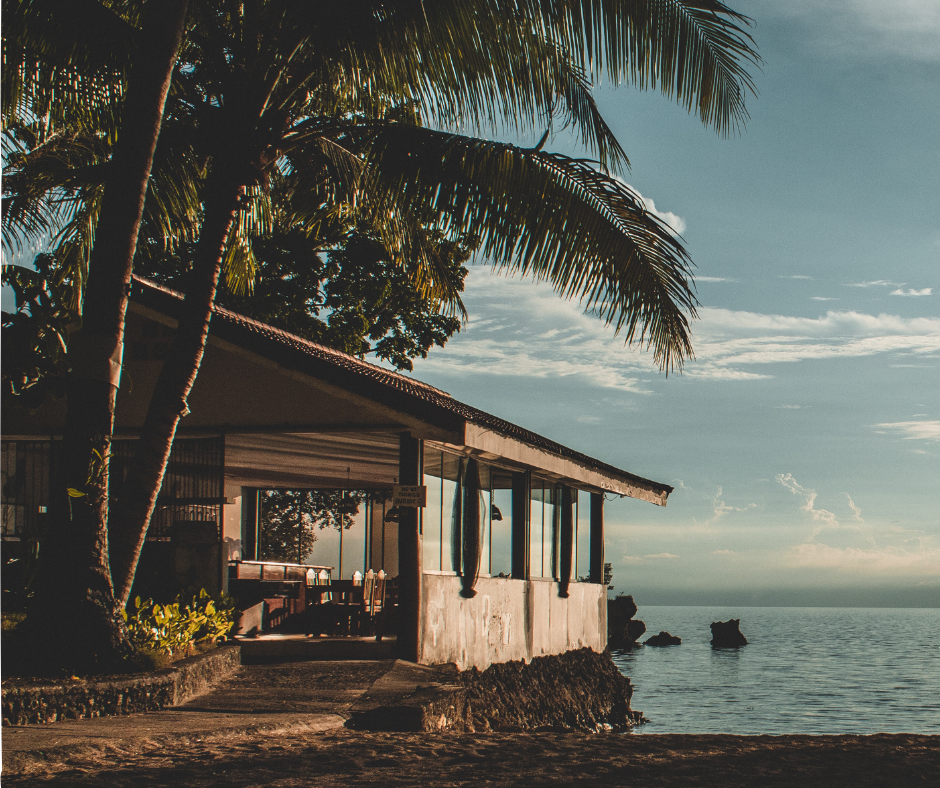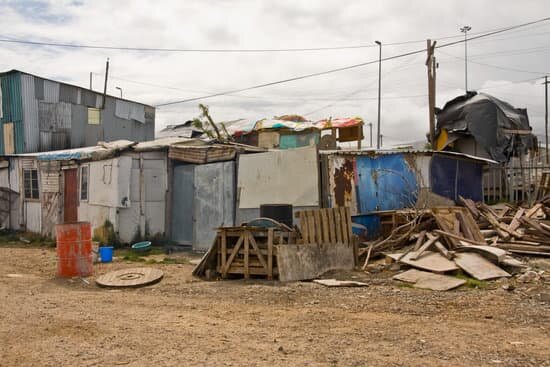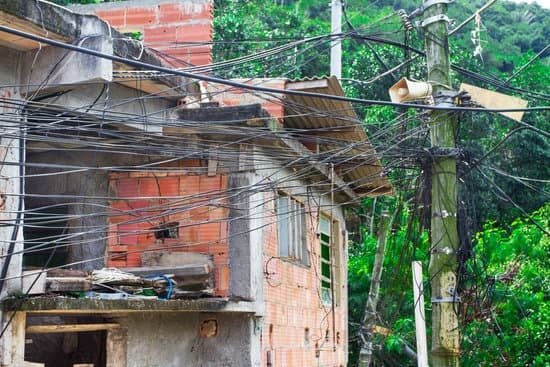
What You Need to Know About Hawaii’s Squatters Rights
If you want to know about squatters’ rights in Hawaii, there are some important things to consider. Adverse possession, also known as squatters’ rights, is a legal idea that lets someone claim ownership of land they have been living on without permission for a certain amount of time. This will happen in Hawaii in 20 years. Additionally, the person claiming squatters’ rights must have been paying property taxes on the land and living there without the owner’s permission.
If real estate buyers and property owners in Hawaii know these rules, they can protect their properties from thieves. Knowing these basics can help you avoid losing money or belongings without planning to. At Oahu Home Buyers, we buy houses across Hawaii and provide a fast cash payment, working directly with you to sell your property. Contact us today and visit our FAQ page for more information.
Finding out what the laws and rules are in Hawaii about squatting
Squatters, or people who live on empty or abandoned land without permission, are becoming a bigger problem in Hawaii. It is very important for real estate buyers and property owners to know the rules and laws about squatting in this state.
In Hawaii, squatters have several rights that protect them from being removed right away. Property owners need to know how to handle these situations properly. As a result, more rules are in place to stop squatters from using adverse possession to take full ownership of the property.
Knowing these laws and rules can help property owners protect their assets and ensure their rights as landlords are upheld. Oahu Home Buyers are not realtors; we are real estate investors and problem solvers. We can quickly buy the house you want to sell, offering a fair all-cash deal and closing on your schedule!
A Complete Guide to Hawaii’s Squatters’ Laws and Rights
You must know about squatters’ rights to protect your land and real estate investment in Hawaii. Adverse possession, also known as “squatting,” is a legal concept that says someone can own property by living on it without the owner’s permission for a certain amount of time.
The rules about squatting in Hawaii are difficult, and you need to know them well to keep your property safe. This detailed article will teach you everything you need to know about squatters’ rights and the law in Hawaii. It includes how to keep squatters from living on your land and what you can do legally if they do. You can help protect Hawaii’s valuable resources by learning about this topic. Oahu Home Buyers provides a Complete Guide to Hawaii’s Squatter Rights and buys houses for Cash. Learn more about Our Process here.
Learning about Hawaii’s history and how squatters’ rights have changed over time
Squatters’ rights in Hawaii have a long and difficult history deeply rooted in the state’s politics and culture. The idea of squatters’ rights came from traditional Hawaiian land practices that let people share land use and ownership.
However, when Western ideas came to the area, and rules about private land were implemented, squatters’ rights were sometimes ignored, making their presence illegal. Over time, different court decisions and changes to the law have shaped the growth of squatters’ rights in Hawaii, which has led to more information about this controversial issue. People who invest in or own real estate need to be aware of these changes to protect their properties from squatters’ claims.
Making the definition of “adverse possession” clearer in Hawaii
A legal theory called “adverse possession” says that someone can legally own something by having it in public for a certain amount of time without the real owner’s permission or approval. This year is twenty years in Hawaii.
Based on the idea of adverse possession, someone who has lived on your land for 20 years or more may have a legal right to it. This can be scary for real estate buyers and property owners because it puts their own interests at risk.
If you know the laws and rules of adverse possession in Hawaii, you can protect your property investment from squatters who say they have the right to live there.
Knowing the Most Important Parts of Hawaii Squatters’ Rights Claims
Regarding squatters’ rights in Hawaii, property owners should pay extra attention to a few basic things. One of the most important factors in determining squatters’ rights is how long the person has lived on the land without permission.
Hawaii requires unfavorable occupations to occur for at least 20 years. This means that someone must have lived on the land in a public way for at least 20 years to claim squatters’ rights. The person living there also has full ownership of the land and cannot have been given permission or a license to use it by the real owner.
It’s also important to note that in Hawaii, squatters don’t automatically have rights to the land just because they pay their taxes or fix it up. Homeowners can protect their property and avoid problems with illegal renters if they know these important factors.
Looking at how trespassing laws protect property owners’ rights
Real estate buyers and property owners in Hawaii must know about squatters’ rights to protect their belongings. However, one more important thing to consider is how trespassing laws help protect the rights of property owners.
These rules stop people from using or living on someone else’s land without permission. Property owners can better protect their rights and belongings by examining these laws and knowing how they apply to squatters. Legal warnings, like trespassing laws, make it clear that stepping on someone else’s land without permission will not be tolerated. They also give people who own land or buildings a way to take back control of them and deal with people who are trespassing. Hawaii property owners must know about squatters’ rights and trespassing laws to protect their investments and keep control of their land.
How important it is to know your limits when dealing with squatters’ claims
People who buy or sell real estate in Hawaii need to know about renters’ rights. One of the most important things to remember when dealing with squatters’ claims is your boundaries.
This means that you should know the legal boundaries of your land and how many rights a squatter has on your land. In Hawaii, you must know your property lines and do something if someone is trespassing on your land because squatters can claim adverse possession after living on the land for twenty years.
Knowing your limits can protect your business and property from renters’ disputes. It’s also important to regularly inspect and fix the clear boundary lines to avoid confusion or problems with nearby properties.
Comparing rental laws and arguing against squatters’ rights
Hawaii property owners must know about renters’ rights and rental rules to protect their property. Tenancy rules spell out the formal relationship between an owner and a renter, including what rights and duties each party has.
On the other hand, squatters’ rights are those of people who live on someone else’s land without permission, which means they are legal rights. Tenancy laws make landlords safer, but squatters’ rights could put property owners at risk because they give certain rights to people who have lived on the land for a long time. People who own property in Hawaii should know the differences between these two ideas and how they might affect their purchases in real estate there.
Clearing up some common misunderstandings about buying property through adverse possession.
A common myth about adverse possession, also known as squatters’ rights, is that it is a quick and easy way to acquire property. Hawaii is different, though.
Adverse possession is a long and difficult process because the state has strict rules and requirements for it. A common lie is that anyone can claim squatter’s rights on land where they have lived for some time.
According to the law, someone who claims adverse ownership must meet certain conditions and prove that they have been using the property without permission from the rightful owner. Along with that, it’s not always clear whether paying taxes on a certain piece of land gives someone the right to sit on it.
The court may consider this, but it is not enough to show adverse ownership on its own. People who own property in Hawaii should know about these false views to protect their assets and stay out of trouble with the law.
How do Native Hawaiian land rights affect cases where people are squatting?
Native Hawaiian land rights have a big impact on squatting cases in Hawaii. The end of the Hawaiian kingdom and the United States annexation have made land ownership issues difficult and sometimes contentious.
Native Hawaiians have been pushed to the edges of society and forced to move many times in the past. They have claimed their rights to historical lands through the Hawaiian Homes Commission Act and other legal routes. This law gives certain Native Hawaiians the right to live on their land and use it for farming, ranching, or living purposes.
These strange land rights can make it harder to prosecute people for squatting because they may include competing claims to property taken without permission. Property owners and investors in Hawaii could protect their rights and work out any leasing disputes that involve Native Hawaiian land rights if they understood these issues and talked to a lawyer.
Looking at what might happen if you break Hawaii’s squatter’s rights laws
Hawaii’s property law has a complicated part called “adverse possession,” sometimes called “Squatter’s rights.” These rules are very important if you are an investor or owner of real estate and want to protect your money.
If you don’t follow Hawaii’s rules on squatters’ rights, you could lose your investment or land, among other things. Dealing with people who might be squatters on your land needs careful research and due diligence to help you stay out of trouble with the law.
If you ignore this, it could lead to expensive lawsuits and big financial losses. It is important to get legal advice and learn about the specific rules and procedures for squatter’s rights in Hawaii. This will help you protect your property and real estate investment.
Ways to settle disagreements between property owners and people who might be adversely possessing the property
One of the most important things for Hawaii property owners and people who might be trespassing to avoid problems is understanding squatters’ rights.
To protect your property and real estate investment, property owners should know the laws and rules about adverse control. It is also suggested that you keep an eye on your property all the time and act quickly if you see any signs of possible bad control, such as illegal use or occupation of your land.
In addition, getting legal advice from a good lawyer will help you work out any problems and take the steps to protect your property rights.
Hawaii’s Successful and Unsuccessful Adverse Possession Claims: A Case Study
To understand squatters’ rights in Hawaii, you need to consider how often cases for unfavorable occupancy are successful. This legal idea says that someone can claim ownership of the property if they have used it without the owner’s permission in public and regularly for a certain amount of time.
Property owners in Hawaii who want to protect their assets can learn a lot by looking at case studies of both successful and unsuccessful claims. In one case, a man claimed ownership of a seaside property after using it for more than twenty years. In another case, a couple claimed ownership of land but never lived on it or made any changes to it. These examples show how important it is to meet the strict requirements for Hawaii’s unfavorable possession law.
Looking at the pros and cons of letting a renter take over your land without your permission
In Hawaii, squatters’ rights, also called “adverse possession,” can be contentious among landowners. The original goal of these rules was to protect people living on someone else’s land or property without permission for a long time. However, they can also be dangerous for property owners.
If you let a renter become an adverse owner of your property, they may be able to claim legal possession after a certain time, no matter what the terms of their original agreement or lease were. When disagreements and court cases happen, this can be stressful and cost a lot for property owners. However, letting a renter become an adverse possessor could also have benefits, such as keeping a steady stream of rental income and avoiding the cost of removal. People who own land should consider the pros and cons of letting adverse ownership happen before deciding.
How do I get rid of a squatter in Hawaii?
To protect your Hawaii property investment, you should learn about renters’ rights and how they might affect your property. A common problem for Hawaii property owners is squatting, also known as illegally living on their land. Still, understanding the rules and following the safety rules will help keep thieves out of your house. If you discover a squatter on your land, you must know how to quickly and properly remove them.
Hawaii’s removal process differs from other states, so it’s best to talk to an experienced real estate lawyer. You can get rid of squatters from your property and protect your investment by following the law and knowing your rights as a property owner.
How short is the time for squatting rights?
Regarding real estate, squatters’ rights, also known as adverse possession, can be a complicated and sometimes misunderstood idea. People who own land in Hawaii are protected from squatters who abuse their rights by laws and rules.
Even so, many people still don’t know how long squatters have to claim property rights. Hawaii law says that a squatter has at least 20 years to possibly become the owner by living there for too long.
This means someone could legally claim your land if they lived there without your permission for twenty years or more. People who own property in Hawaii should know and follow these rules to protect their investments from renters.
Is the squatting in Hawaii a problem?
People investing in or owning land in Hawaii are increasingly worried about renters. With its beautiful beaches and warm weather, the state has attracted tourists and people looking for a place to live. So many invaders, though, make protecting property rights in Hawaii hard. Many property owners have been left open to attack while trying to understand the complicated state squatting laws. This lesson will discuss the problem of squatting in Hawaii and give you some simple tips on keeping squatters from stealing your property.
Can someone be kicked out of Hawaii without a lease?
If you own property in Hawaii, you should know about squatters’ rights and how they could affect your stake. People who live on someone else’s land without permission or, in some cases, a lease deal are called squatters.
Even though this seems like a clear violation of your property rights, in Hawaii, getting rid of someone who doesn’t have a lease can be hard and time-consuming. Hawaii’s adverse possession rules protect squatters who meet certain conditions, letting them claim ownership of a property.
Now that you know about the laws and rules about squatters’ rights in Hawaii, you can protect your real estate investment from possible problems and losses. Reach out to us today for assistance, and visit our FAQ page to learn more about protecting your investment and navigating squatters’ rights in Hawaii.
Sell Your House in Hawaii For Cash 💰
We buy houses As-Is, pay CASH, can close FAST, and you won’t pay any commissions or fees. Fill out the form to get your cash offer today!
Give Us A Call Now At (808) 333-3677
We buy houses in Hawaii on all the island and its cities, including Oahu, Maui, Honolulu, Pearl City, Waipahu, and others. If you need assistance in Kona or have questions about selling your home to cash home buyers in Hawaii, call us at (808) 333-3677. You can also find more information on our company page.













